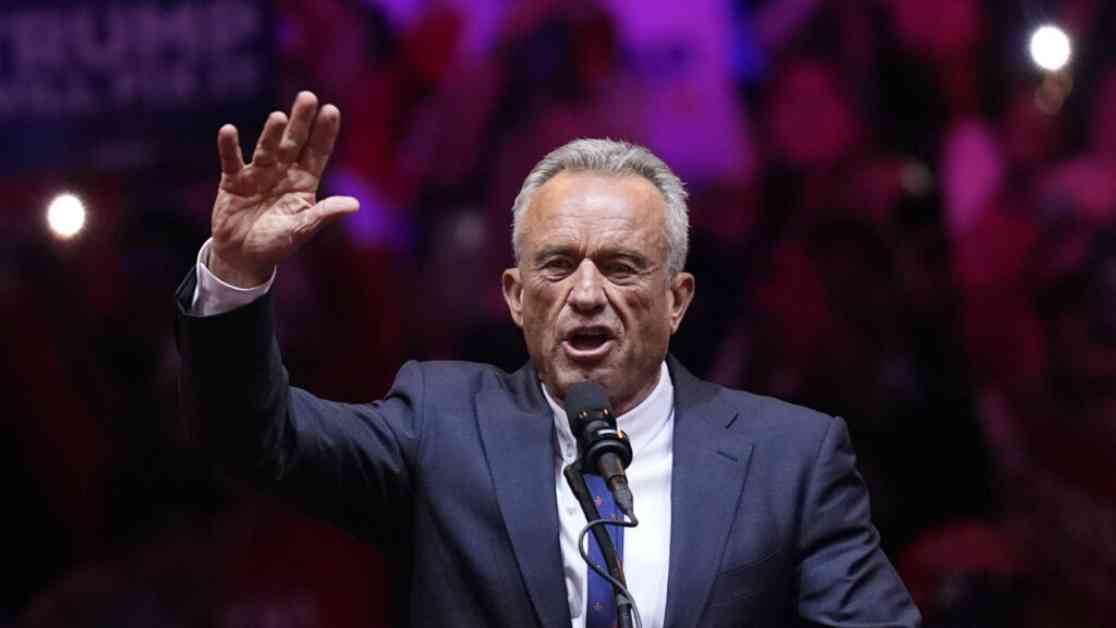President-elect Trump’s announcement that Robert F. Kennedy Jr. is nominated to lead the Department of Health and Human Services has sparked both support and concern. If confirmed by the Senate, RFK Jr. could bring significant changes to public health agencies, particularly in the areas of vaccines, medicines, and food policies.
RFK Jr. aims to prioritize the restructuring of agencies, departure of staff, and implementation of new requirements related to vaccine data, drug approvals, and research. He emphasizes the need to combat corruption, prevent conflicts of interest between industries and government, and uphold evidence-based science in health agencies. However, his stance on Medicare, Medicaid, and the Affordable Care Act remains unclear.
Regarding food policy and the FDA, Kennedy advocates for improving the food supply to prevent chronic diseases that affect a large portion of the population. He plans to remove ultra-processed foods from school lunches and limit the use of food dyes. While his intentions are to promote public health, challenges exist in defining and regulating ultra-processed foods due to the lack of consensus and research on their health effects.
RFK Jr. has been critical of the FDA’s regulation of food, medicine, tobacco, and vaccines, accusing the agency of hindering public health with aggressive suppression of certain therapies. He aims to address issues related to raw milk, stem cells, and various alternative health treatments. However, concerns persist over the safety and efficacy of some of these approaches.
In terms of environmental factors, Kennedy’s background as an environmental lawyer raises expectations for his focus on water and environmental policies. He has expressed opposition to water fluoridation and may seek to influence local and state governments to ban the practice, citing potential health risks. His influence has already prompted some local actions, such as the removal of fluoride from the water supply in Winter Haven, Florida.
RFK Jr.’s views on vaccines have drawn controversy, as he has promoted the discredited link between vaccines and autism for years. While he advocates for transparency and data on vaccine harms, experts fear that his anti-vaccine rhetoric could undermine public trust and lead to lower vaccination rates, potentially resulting in disease outbreaks.
Kennedy’s proposed institutional reforms at health and science agencies aim to address corporate corruption, perverse incentives, and conflicts of interest within these organizations. By targeting FDA user fees and NIH royalties, he seeks to eliminate industry influence and promote greater transparency and accountability in public health decision-making.
His position on addiction treatment and mental health services could shape federal policies in these areas, especially given his personal experience with addiction. While advocating for wellness and drug rehabilitation farms, Kennedy’s views on evidence-based addiction medicine remain unclear, raising questions about his approach to addressing the opioid crisis and mental health issues.
RFK Jr.’s unscientific views on issues such as HIV/AIDS, school shootings, and fluoride raise concerns about his adherence to mainstream scientific consensus. His promotion of alternative treatments and conspiracy theories may challenge established public health practices and policies.
Regarding abortion policy and reproductive rights, Kennedy’s evolving stance on abortion access has faced criticism from both sides of the political spectrum. His commitment to upholding bodily autonomy while acknowledging restrictions past fetal viability could be a contentious issue during the confirmation process, particularly among anti-abortion advocates.
In conclusion, Robert F. Kennedy Jr.’s nomination to lead the Department of Health and Human Services signifies a potential shift in public health priorities and policies. While his proposed reforms and initiatives aim to enhance public health outcomes, concerns remain about his controversial views on vaccines, food policy, environmental issues, and abortion, which could impact his confirmation process and future leadership in the department.


















